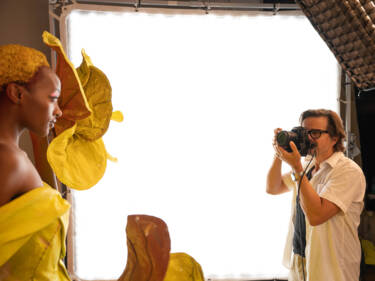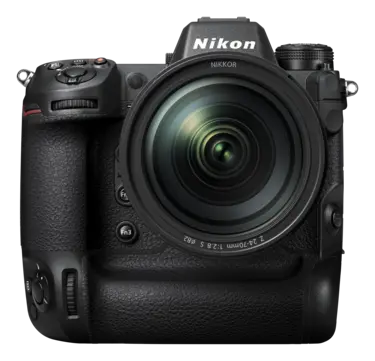Elevate your Wimbledon photography with Corinne Dubreuil
Know your Australian Open from your Wimbledon? Corinne Dubreuil gives us the lowdown on tennis, from photographing grass vs clay, colours, camera angles and her go-to settings
If you’ve browsed through images of Wimbledon over the years, chances are you’ve stumbled upon Corinne Dubreuil’s stunning shots. From the winners of the men’s and women’s singles Carlos Alcaraz Garfia and Marketa Vondrousova, to Aryna Sabalenka, Andy Murray and Novak Djokovic, Corinne has been snapping the players we love to watch for more than three decades. Ahead of this year’s games, Corinne provides Nikon magazine her top tips and reminisces on Wimbledon 2023.
Nikon magazine: How does photographing grass court tennis differ to clay court?
Corinne: A grass match is quicker than a clay court match as you don’t have so many rallies, it’s more hit and serve. You must be organised as it’s very quick and players often don’t play the same way or make the same movements as on a clay court.
How does Wimbledon differ to other tournaments?
At Wimbledon, everyone wears white so the focus isn’t on the colour, as such. We don’t have as many angles to choose from — we can mostly only photograph at court level, very close to the players. We can sometimes photograph a little higher up and capture the green court. I like to photograph upwards as much as I can, especially as there’s no [perimeter] advertising at Wimbledon so the back of the court is dark. Sometimes I’m in the pits and I photograph the back of the players or their face if the players are asking for the ball.
I use the NIKKOR Z 70-200mm f/2.8 VR S and for zoom I use the beautiful AF-S NIKKOR 120-300mm f/2.8 E FL ED SR VR with my Mount Adapter FTZ II on my Z 9, which is absolutely perfect for tennis. The ability to have a f/2.8 aperture is especially beautiful for night shots.
One of the best lens to photograph Wimbledon on centre court is the AF-S NIKKOR 105mm f/1.4 E ED — the background is absolutely beautiful, and it separates the player away from the crowd perfectly.
I have been using the Z 9 for two years and I love it. Previously, I used the D850 which is still perfect for my beach photography because the frame is so large, but I don’t use it for tennis anymore due to the noise — the Z 9 is silent. My second body is the Nikon Z 8.
How do you plan ahead for a match?
I have a look at the schedule of all matches on every court. And depending on my clients, I do my own schedule and I go from one court to another. I always check the scores on my phone to see if we are close to the end — I normally photograph 15 to 25 matches.
As I work for the French Tennis Federation, I often focus on French players and on the big names. If I’m working for a brand I’d also of course photograph the players of that brand.
What makes a great action shot in tennis?
A good tennis shot doesn’t have to have the ball in it. I’m not looking for just a racquet and ball, although of course I do photograph that as well. I capture pure emotions. I love faces and clothes — even though at Wimbledon it’s all white — but I love to photograph the shoes of the players on the grass. The racquet with the ball is certainly the last thing I look for.
Do you use a monopod when photographing action?
A monopod makes photographing absolutely more comfortable. With any lens over 300mm you should use a monopod to protect your back from hunching over.
What are your usual camera settings?
When I use the AF-S NIKKOR 120-300mm f/2.8 E FL ED SR VR lens, I always open at f/2.8. If it’s sunny, I will use 200 ISO and if it’s a little cloudy, I might go to 400 or higher. If I want an extra special photograph — a silhouette or shot at the end of the day – I change my settings to capture the darkness and the aperture may be higher such as f/11.
What burst rate do you use during a match?
The Z 9 is super-fast with a burst rate of 20 FPS. I try to photograph when I think it’s a good time to do it. I edit my pictures between points since it’s quicker than editing on the computer and download only the key pictures on my computer.
How much editing do you do post-match? Would you suggest amateurs photograph RAW OR JPEG?
I try to not spend too much time editing! I often crop the images on my computer, but I’ll leave them otherwise. I also only photograph JPEG. When you photograph over 20 matches in one day, my computer would not be able to handle the RAW files!
In our last interview you said Rafael Nadal was your favourite player to photograph. Is that still the case?
I love to capture Rafael because he’s really expressive and not only is he a great champion, he’s also a really great guy. We also have some very good up-and-coming new players.
More in Sports & Action

Unleash your creativity











